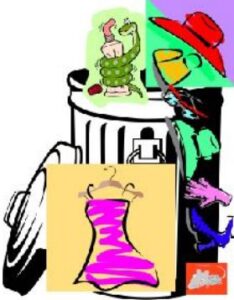 by Deborah HommerIn the fall of 2020 news media were highlighting the drastic increase in suicide/mental health issues among teenagers. Most accounts blamed the social isolation resulting from the COVID-19 pandemic.I think there’s more to it than that. Our 9th grader’s required English book last year celebrated two teens who had to learn the “art of killing” in a dystopian world. One teen stated, “It is the most difficult thing a person can be asked to do. And knowing that it is for the greater good doesn’t make it any easier. … The ending of life used to be in the hands of nature. … We are its sole distributor .. how necessary the work is.” (“Scythe” by Neal Shusterman).
by Deborah HommerIn the fall of 2020 news media were highlighting the drastic increase in suicide/mental health issues among teenagers. Most accounts blamed the social isolation resulting from the COVID-19 pandemic.I think there’s more to it than that. Our 9th grader’s required English book last year celebrated two teens who had to learn the “art of killing” in a dystopian world. One teen stated, “It is the most difficult thing a person can be asked to do. And knowing that it is for the greater good doesn’t make it any easier. … The ending of life used to be in the hands of nature. … We are its sole distributor .. how necessary the work is.” (“Scythe” by Neal Shusterman).
Three years ago, our 12th grader’s required English book, “Jazz” by Toni Morrison, contained sexual activity between a man and an older teenage girl, a father stomped to death, a mother burned, revenge, obsession, and fantasy killing. The other required book, “Cat on a Hot Tin Roof” by Tennessee Williams, contained alcoholism, homosexuality, sodomy, frustrated sexuality, infidelity, jealousy, seduction, lying, insulting remarks, and threats to kill.
Could there be a connection?
In an email to the school principal and others, I wrote:
I am well aware that in this area we have an abundance of students struggling with mental health and suicide. … As adults, when our mental health dictates that we not read certain materials, we can put them down. But how many vulnerable students in that class will be able to tell the teacher they can’t read the book for mental health reasons? How many students will take to heart that since the lives in this dystopia book don’t matter that their lives don’t matter?
A few days later the high school community received an email from the principal that a student had taken his life. I then emailed him, and others, an overwhelming amount of alarming, pre- and post-COVID statistics regarding the suicide/state of the mental health of our children and, implored them to substitute the required 9th-grade English required reading books.
Nothing changed. How can our high school claim to care about their students while displaying such blatant disregard for students’ mental health? It’s well-known that what we read affects our mental state.
Afterward, I FOIA’d the high school’s required English reading books for all grades. They have 56 books on their approved list. All except two — one being an alternate book that my child could have read and the other being Hamlet — has the caution to consider language, violence, implied or explicit sexual situations, mental health, and drug/alcohol use. Every book that my daughters would have been required to read was permeated with this type of content, not just a chapter or a few pages.
The stated objective of assigning all 56 books was for students to understand diverse perspectives and to reflect on the diversity of the school’s community. The goals may be worthy, but the books are debauched.
Last week Fairfax County Public Schools Superintendent Scott Brabrand distributed an email warning parents about TikTok clips that urge young people to engage in vandalism, assault staff, invade other peoples’ personal space, and display their private parts. Ending by threatening possible criminal charges, he encouraged parents to talk with their children to make schools a safe environment.
Synapses should be firing in the brains of principals, administrators, school board members — what students are reading in class helps to normalize such activities. Schools are failing students when they neglect to take into account their mental health and moral development.
The distribution of lowest-common-denominator books is inconsistent with directives of law. The Supreme Court has stated there is a “duty to inculcate community values in school.” And “[t]he importance of public schools in the preparation of individuals for participation as citizens, and in the preservation of the values on which our society rests, long has been recognized by our decisions.”
The Code of Virginia emphasizes moral and character education. In fact, the legislature does not need to show actual harm to ban materials in order to protect “the social interest in order and morality.”
Parents allowing their children to read such books in one thing; schools requiring the reading of such materials is another thing. Schools need to teach students to read critically while also inculcating community values. They can accomplish that objective without dressing up garbage.
Deborah Hommer resides in Fairfax County. She is founder, 501(c)(3) ConstitutionalReflections (Website under construction).

Leave a Reply
You must be logged in to post a comment.